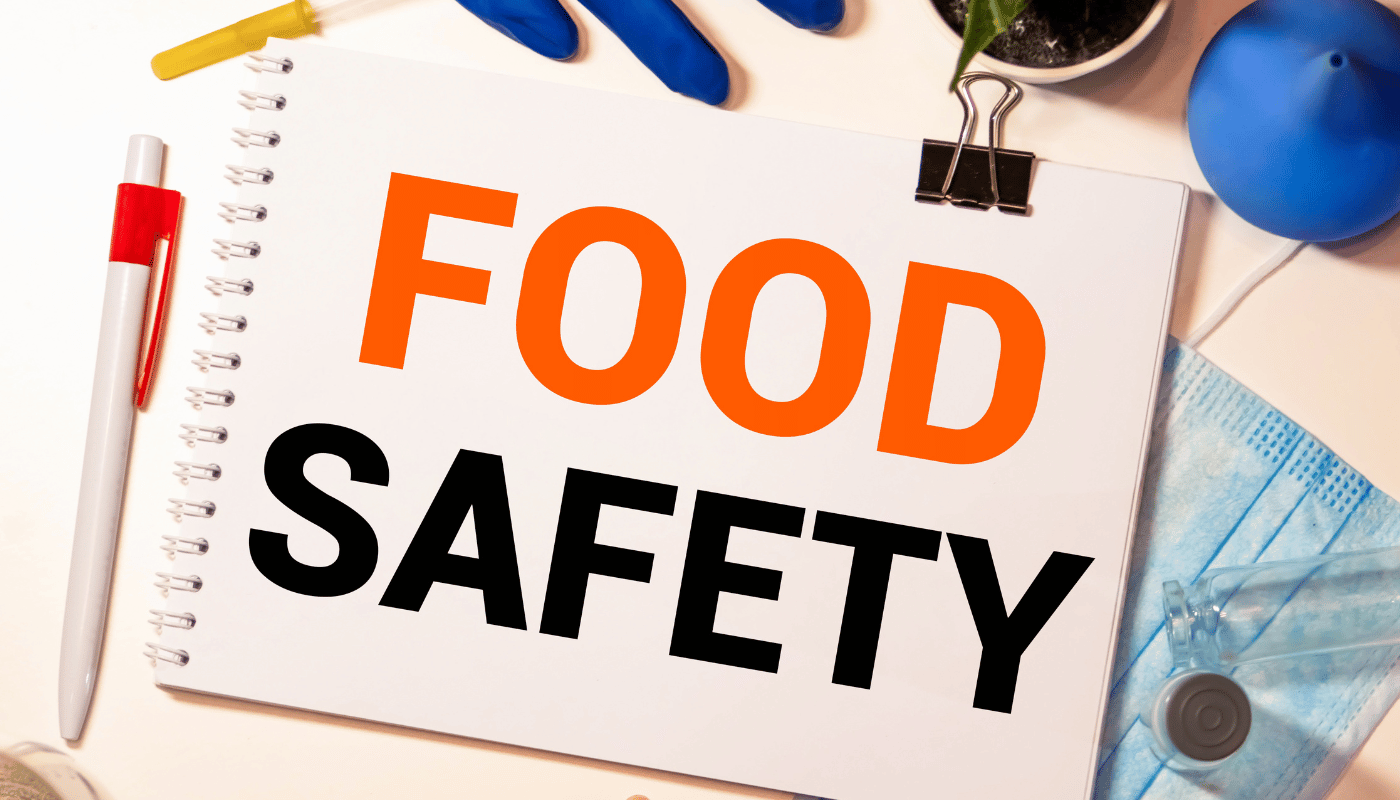When food safety rules are overlooked, the consequences can ripple far beyond a simple stomachache. From minor discomforts to severe health risks, the spectrum of potential outcomes is wide and alarming. But what exactly are these dangers, and how do they manifest? This exploration unveils the hidden threats lurking in our meals when safety protocols are ignored, highlighting why adherence to these guidelines is not just advisable, but essential for our well-being.
Outbreak of Foodborne Illnesses
Ignoring food safety rules can lead to the rapid spread of foodborne illnesses, posing significant risks to public health. These illnesses are caused by consuming contaminated food, which can harbor dangerous pathogens such as bacteria, viruses, and parasites. The consequences of such outbreaks can be severe, affecting a wide range of individuals across different demographics. Vulnerable populations, including children, the elderly, and those with weakened immune systems, are particularly at risk.
One of the primary concerns is the onset of gastrointestinal symptoms, such as vomiting, diarrhea, and abdominal pain, which are common manifestations of foodborne diseases. In more severe cases, these illnesses can lead to long-term health complications, including kidney failure, chronic arthritis, brain and nerve damage. It is crucial to understand that the impact of not following food safety guidelines goes beyond immediate health concerns; it can also strain healthcare systems and cause significant economic losses due to medical expenses and lost productivity.
Preventative measures, such as proper food handling, storage, and preparation practices, are essential to reduce the incidence of foodborne illnesses. These include maintaining the right temperature for storing food, avoiding cross-contamination, and ensuring food is cooked thoroughly. By adhering to established food safety protocols, it is possible to significantly decrease the likelihood of an outbreak and protect public health.
| Pathogen | Common Sources | Major Symptoms |
|---|---|---|
| Salmonella | Poultry, eggs, dairy products | Diarrhea, fever, abdominal cramps |
| E. coli | Raw ground beef, contaminated fresh produce | Severe stomach cramps, diarrhea (often bloody), vomiting |
| Listeria | Soft cheeses, deli meats, unpasteurized dairy products | Fever, muscle aches, nausea or diarrhea |
| Norovirus | Contaminated water or food, touching contaminated surfaces | Vomiting, diarrhea, nausea, stomach pain |
| Hepatitis A | Contaminated food or water, close contact with an infected person | Fatigue, nausea, stomach pain, jaundice |
Understanding the dynamics of foodborne illnesses requires more than just acknowledging their existence. It demands a comprehensive approach to food safety, from farm to fork, ensuring that every step of the food preparation and consumption process is safeguarded against contamination. This not only involves regulatory compliance but also public education on safe food handling practices. Equipping people with the knowledge and skills to prevent foodborne diseases is a critical component of public health efforts.
Strategies to Prevent Foodborne Illness Outbreaks
Effective strategies to prevent foodborne illness outbreaks involve a multi-faceted approach that includes regulatory oversight, industry best practices, and consumer education. Regulatory bodies play a crucial role in setting and enforcing food safety standards, while food industry professionals must implement these guidelines diligently in their operations. Consumer education is equally important, as it empowers individuals to make informed decisions about food safety, such as proper handwashing, cooking, and storage techniques. Together, these efforts can significantly reduce the risk of foodborne illness outbreaks, safeguarding public health and ensuring the integrity of the food supply chain.
The Grave Consequences of Ignoring Food Safety Regulations
Ensuring food safety is a critical responsibility shared by producers, retailers, and consumers. Neglecting established food safety protocols can lead to severe, sometimes fatal consequences. One of the most immediate outcomes is the outbreak of foodborne illnesses. These illnesses can range from mild gastroenteritis to more severe conditions like salmonellosis or listeriosis, which can be particularly dangerous for vulnerable populations such as the elderly, pregnant women, and individuals with compromised immune systems.
Another significant risk associated with the disregard of food safety measures is cross-contamination. This occurs when harmful bacteria or viruses are transferred from one food item to another, often due to improper storage or handling. Cross-contamination can turn even safe-to-eat foods into vehicles for disease. Furthermore, the economic impact on businesses found to be in violation of food safety standards can be catastrophic. Companies may face legal penalties, loss of consumer trust, and the costs associated with recalling contaminated products.
On a larger scale, persistent failures in food safety can undermine public health systems and lead to a loss of confidence in food supply chains. This can have far-reaching effects on food security and the economy, particularly in regions already vulnerable to food scarcity. To mitigate these risks, it is essential that all stakeholders in the food production and distribution process strictly adhere to food safety guidelines and regulations.
| Consequence | Immediate Impact | Long-Term Impact |
|---|---|---|
| Foodborne Illnesses | Health deterioration, hospitalization | Increased healthcare costs, mortality |
| Cross-Contamination | Spread of bacteria/viruses | Widening of foodborne disease outbreaks |
| Economic Loss | Recall costs, legal penalties | Loss of consumer trust, business failure |
| Public Health System Strain | Emergency response to outbreaks | Long-term healthcare burden, policy changes |
Economic Losses to Businesses
Ignoring food safety rules can lead to substantial economic losses for businesses. These losses manifest through several channels, including direct costs associated with recalls, legal fees stemming from lawsuits, and the more diffuse yet equally detrimental costs related to brand damage. A single incident of food contamination can force a business to recall its products, a process that not only incurs the expenses of retrieving the product from the market but also the costs of destroying or reprocessing the affected goods.
Moreover, the aftermath of a food safety scandal often includes legal battles. Companies may face lawsuits from affected consumers, leading to hefty legal expenses and potential compensation payouts. However, perhaps the most significant economic impact comes from the damage to the company’s brand and reputation. In today’s digital age, news of a food safety lapse spreads rapidly, and the resulting public scrutiny can lead to a loss of consumer trust. This erosion of trust can have a long-lasting effect on sales and profitability, as consumers switch to competitors perceived as safer.
Finally, businesses might also face increased insurance premiums and regulatory fines, further straining their financial resources. The cumulative effect of these costs can be devastating, particularly for small to medium-sized enterprises, which may lack the financial resilience to absorb them. In extreme cases, it can lead to business closure. Therefore, adhering to food safety protocols is not just a regulatory requirement but a critical component of financial risk management for businesses in the food industry.
Table: Overview of Economic Losses Due to Food Safety Lapses
| Type of Loss | Example | Potential Impact |
|---|---|---|
| Recall Costs | Retrieving and destroying contaminated products | Immediate financial loss, operational disruption |
| Legal Fees & Compensation | Lawsuits from affected consumers | Substantial financial payouts, long-term legal costs |
| Brand Damage | Negative media coverage | Loss of consumer trust, decline in sales |
| Increased Insurance Premiums | Higher risk category | Long-term increase in operational costs |
| Regulatory Fines | Penalties for non-compliance | Immediate financial impact, possible increased scrutiny |
Legal Consequences for Violators
When food safety rules are disregarded, the repercussions extend beyond the immediate health risks to consumers. Violators may face stringent legal consequences, which serve as a deterrent against negligence and ensure that food safety standards are upheld. The legal framework surrounding food safety is designed to protect public health, and failure to comply can result in severe penalties.
One of the primary legal consequences is the possibility of heavy fines. These are not only punitive but also aim to recover the costs associated with the investigation, enforcement actions, and any public health responses that may have been required due to the violation. In some cases, the fines can escalate to amounts significant enough to impact the financial stability of a business. Additionally, businesses found in violation of food safety laws may face suspension of their operating licenses. This suspension acts as a direct hit to their ability to operate, effectively halting all business activities until the establishment can demonstrate compliance with food safety regulations.
For more serious violations, criminal charges may be brought against individuals or entities responsible. This can lead to imprisonment for those found culpable of gross negligence or intentional misconduct that results in public harm. The prospect of criminal charges underscores the seriousness with which food safety violations are treated and highlights the responsibility of those in the food industry to ensure the safety of their products. Furthermore, businesses may also encounter lawsuits filed by affected consumers, leading to compensation claims that can be financially debilitating. These legal battles not only drain resources but can also tarnish a company’s reputation, causing long-term damage beyond the immediate legal penalties.
Beyond the direct legal consequences, violators may also face additional repercussions, including:
- Increased scrutiny and inspections from regulatory bodies.
- Mandatory training and re-evaluation of food safety protocols.
- Public notification of violations, leading to reputational damage.
- Restrictions on future business operations or expansions.
- Potential loss of contracts or partnerships with other businesses.
In conclusion, the legal consequences for violating food safety rules are designed to ensure compliance and protect public health. They range from financial penalties and operational restrictions to potential criminal charges for severe offenses. These measures highlight the importance of adhering to established food safety standards and the significant responsibilities borne by food industry professionals. Compliance not only helps to avoid legal repercussions but also safeguards the health of consumers and the reputation of the business.
Long-Term Health Complications
Ignoring food safety rules can lead to serious long-term health complications, some of which may not manifest until years after exposure. Among these, chronic gastrointestinal disorders such as irritable bowel syndrome (IBS) and inflammatory bowel disease (IBD) are common, often triggered by foodborne pathogens that damage the gut lining. Moreover, certain pathogens, like E. coli and Salmonella, can lead to severe kidney damage and even chronic kidney disease, underscoring the critical nature of adhering to food safety practices.
Beyond the immediate effects of food poisoning, the risk of developing long-lasting autoimmune diseases increases with exposure to certain bacteria and toxins. Celiac disease, for instance, may be triggered by repeated episodes of foodborne illness, altering the body’s immune response to gluten. Additionally, exposure to foodborne pathogens can also heighten the risk of developing neurological disorders over time, including Guillain-Barre syndrome and reactive arthritis, both conditions that can severely impact quality of life.
It’s essential to recognize that the consequences of neglecting food safety can extend far beyond temporary discomfort or illness. The potential for long-term health complications necessitates a rigorous approach to food handling, preparation, and storage. By understanding and implementing proper food safety measures, individuals and food service entities can significantly reduce the risk of these life-altering conditions.
- Chronic gastrointestinal disorders
- Kidney damage and chronic kidney disease
- Autoimmune diseases like Celiac disease
- Neurological disorders including Guillain-Barre syndrome
- Reactive arthritis and other inflammatory conditions
Additional Insights into Long-Term Health Complications
Delving deeper into the consequences of food safety negligence, it becomes evident that the implications extend beyond individual health to encompass broader public health concerns. The spread of antibiotic-resistant bacteria through the food supply, for instance, represents a significant challenge to global health systems, complicating the treatment of once-treatable infections. This highlights the interconnectedness of food safety practices with the overall well-being of communities and underscores the importance of comprehensive food safety education and enforcement.
Further Context on Long-Term Health Risks
In understanding the full scope of risks associated with inadequate food safety measures, it’s crucial to recognize the role of environmental factors and global food systems in exacerbating these issues. Climate change, for instance, influences the prevalence and distribution of foodborne pathogens, while globalization increases the complexity of tracing and controlling foodborne disease outbreaks. These factors, combined with the long-term health implications discussed, underscore the urgent need for robust, adaptive food safety policies and practices.
Damage to Brand Reputation
When food safety rules are neglected, the consequences can extend far beyond the immediate health hazards posed to consumers. Among the most significant and lasting effects of such oversight is the damage to brand reputation. A single incident of food poisoning linked to a restaurant or product can spark a cascade of negative publicity, quickly eroding public trust. This loss of confidence is not easily regained and can lead to a lasting impact on sales and customer loyalty.
The repercussions of a tarnished reputation are multifaceted. Initially, there might be an immediate drop in sales as news spreads, compounded by the viral nature of social media. The situation can be exacerbated if regulatory bodies step in, leading to fines or temporary shutdowns. However, the most detrimental effects are often seen in the long term. Rebuilding a brand’s image requires significant investment in marketing and stringent improvements to safety protocols, which can be prohibitively expensive. Moreover, the shadow of past mistakes can linger, affecting customer perception and choices.
It is also crucial to consider the broader impact on stakeholders. Suppliers, employees, and investors can all suffer from the fallout, facing financial losses and association with a now-damaged brand. This collective impact can further strain the recovery process, making it a herculean task to restore the brand’s former standing.
- Immediate loss of consumer trust
- Drop in sales and revenue
- Regulatory fines and sanctions
- Costly marketing and safety improvements
- Long-term damage to customer loyalty
Further Insights on Damage to Brand Reputation
Delving deeper into the topic, it’s evident that the ramifications of not adhering to food safety standards touch every aspect of a business. The process of recovering from such a setback not only involves addressing the immediate issues that led to the food safety lapse but also undertaking a comprehensive review of operational practices. This often requires businesses to engage in transparent communication with their customers, possibly involving public apologies and updates on measures being taken to prevent future incidents. Additionally, there may be a need to invest in employee training and possibly revamp the supply chain to ensure higher standards of food safety are met.
The journey towards rebuilding a brand’s reputation is slow and requires a consistent commitment to excellence. It’s a path that tests the resilience of a business and its leadership. Moreover, in today’s digital age, where consumers are more informed and have higher expectations, the stakes are even higher. A brand’s response to a crisis can either pave the way for a successful recovery or lead to its eventual decline. Therefore, the importance of adhering to food safety standards cannot be overstated, not just for the well-being of consumers but for the survival and growth of the brand itself.
In conclusion, the damage to brand reputation from neglecting food safety rules presents a complex challenge, encompassing immediate financial losses and far-reaching implications that can jeopardize the future of a business. The path to recovery is fraught with obstacles, necessitating a strategic approach focused on transparency, quality, and customer engagement. It serves as a stark reminder of the critical importance of maintaining the highest standards of food safety, not only as a regulatory requirement but as a cornerstone of brand integrity and success.

Seasoned writer and casino expert with over eight years of experience in the gambling industry. Specializing in online casino reviews, game strategies, and industry trends, Nathan provides in-depth insights that help players make smart decisions. His work is known for its clarity and thoroughness, making complex topics accessible to both novice and experienced players.







